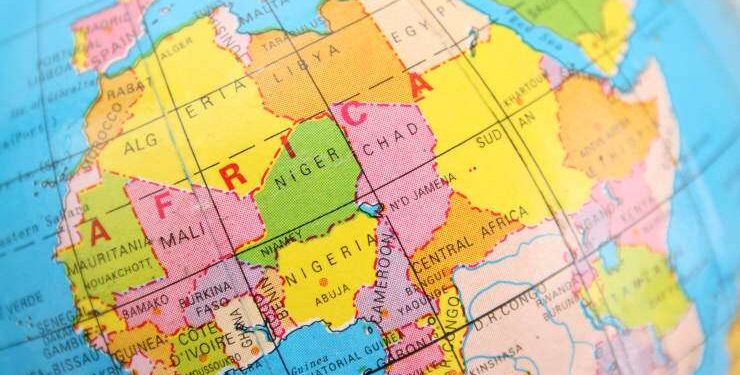Sub-Saharan Africa’s working-age population set to double, revolutionizing its economy, S&P says
The working-age population of sub-Saharan Africa is set to increase more than twofold by 2050 to become the largest in the world, offering unprecedented opportunity for economic growth, according to S&P Global Ratings.
In a report published Wednesday, the ratings agency estimated that growth in the working-age population would add up to three percentage points to the average annual GDP growth for the next 10 years across key economies in the subcontinent.
S&P Global Ratings’ senior economist Satyam Panday said countries in sub-Saharan Africa are now experiencing the “most significant demographic transition in their history.”
“Unprecedented decreases in fertility rates, lower child mortality, and increases in life expectancy will have a crucial importance for the region’s economic outlook for decades to come,” Panday said.
“Age composition in a country’s population is critical for economic growth. For the region, which has experienced subdued economic growth during the last decade, demographic transition may present a chance to take off but can also be a major source of instability and fragility.”
The report highlighted that fertility rates have been in steady decline, falling to 4.6 children per woman over a lifetime in 2019 from 6.3 in 1990. The UN has projected that fertility rates will continue to fall, with some SSA countries approaching a natural replacement rate of 2.1 by 2050.
By comparison, average fertility rates in Southeast Asia and Latin America are expected to be 1.85 in 2050, down from 2.2 in 2020, while the Middle East and North Africa is the only region expected to be above the natural replacement rate by 2050, at 2.5. Across high-income economies, the current rate sits at around 1.6 and is expected to remain at a similar level.
The trajectory is not uniform, however, with fertility rates in steep decline in South Africa, Kenya and Ethiopia, while Nigeria is still seeing rates above 5. The UN projects that Nigeria’s population will reach 400 million by 2050, up from 206 million in 2020.
Policy is crucial to reap ‘demographic dividend’
At the current rate, SSA countries could be set for a “demographic dividend,” the S&P report said. The demographic dividend refers to the increased share of working-age people compared to non-working (i.e. children or older people). With fewer people to support, a country is presented with a window of opportunity for rapid GDP growth.
Read This: China starts constructing $17 billion nuclear power plant
However, governments’ economic policies will be critical to the ability of SSA countries to capitalize on the workforce boom, and Panday suggested that at present the region risks being ill-prepared to reap the benefits of the demographic transition.
“If jobs are not created in tandem, the demographic dividend could become a source of instability, since the relative share of young unemployed people would increase. If governments do not invest in education, access to high-quality education is not improved,” the report said.
“In this case, families will not be able to invest in better education for their children, so the increase in savings won’t increase human capital. If banking services are not widely available and capital markets are not developed, an increase in savings won’t necessarily correspond to an increase in investments.”
While historical evidence shows a clear positive correlation between increased share of employed people and economic growth, the report highlighted that at a certain stage, the declining birth rate will eventually cause the population to age. This means the window of opportunity is limited.
The SSA-5
As well as job creation and investments in “human capital” through education, S&P emphasized the importance of investments in fixed assets, as “capital-deepening” increases labor productivity, creating more possibilities for “higher added value production.”
“For example, in Singapore, capital stock per capita has increased 11x over the past 50 years, while it grew only by around 50% in Nigeria and South Africa. In Ghana, capital stock per capita has been almost unchanged,” the report said.
“Finally, sustainability policies are crucial, as population growth puts more pressure on the natural environment. For example, degradation of the farming soil can lead to the impoverishment of farmers and unsustainable urbanization.”
The report noted that the five biggest economies in the subcontinent, termed the SSA-5 (South Africa, Nigeria, Ghana, Kenya and Ethiopia), will have to create more jobs and increase their investments in human capital to emulate the East Asian “demographic dividend success story.”
Through analysis of data, S&P projected that the East Asian growth scenario is possible for some of the SSA-5. For example, Nigeria could reach 45% of U.S. GDP per capita by 2050 if it could successfully replicate South Korea’s growth experience, S&P analysts suggested.








